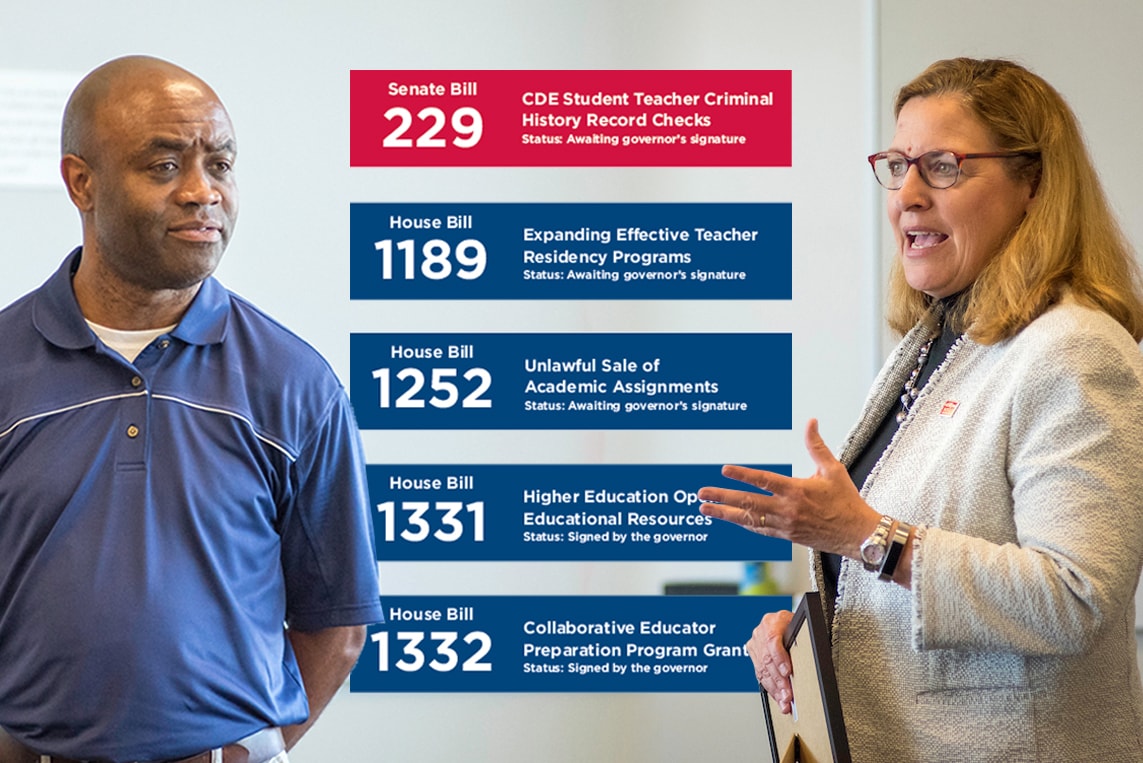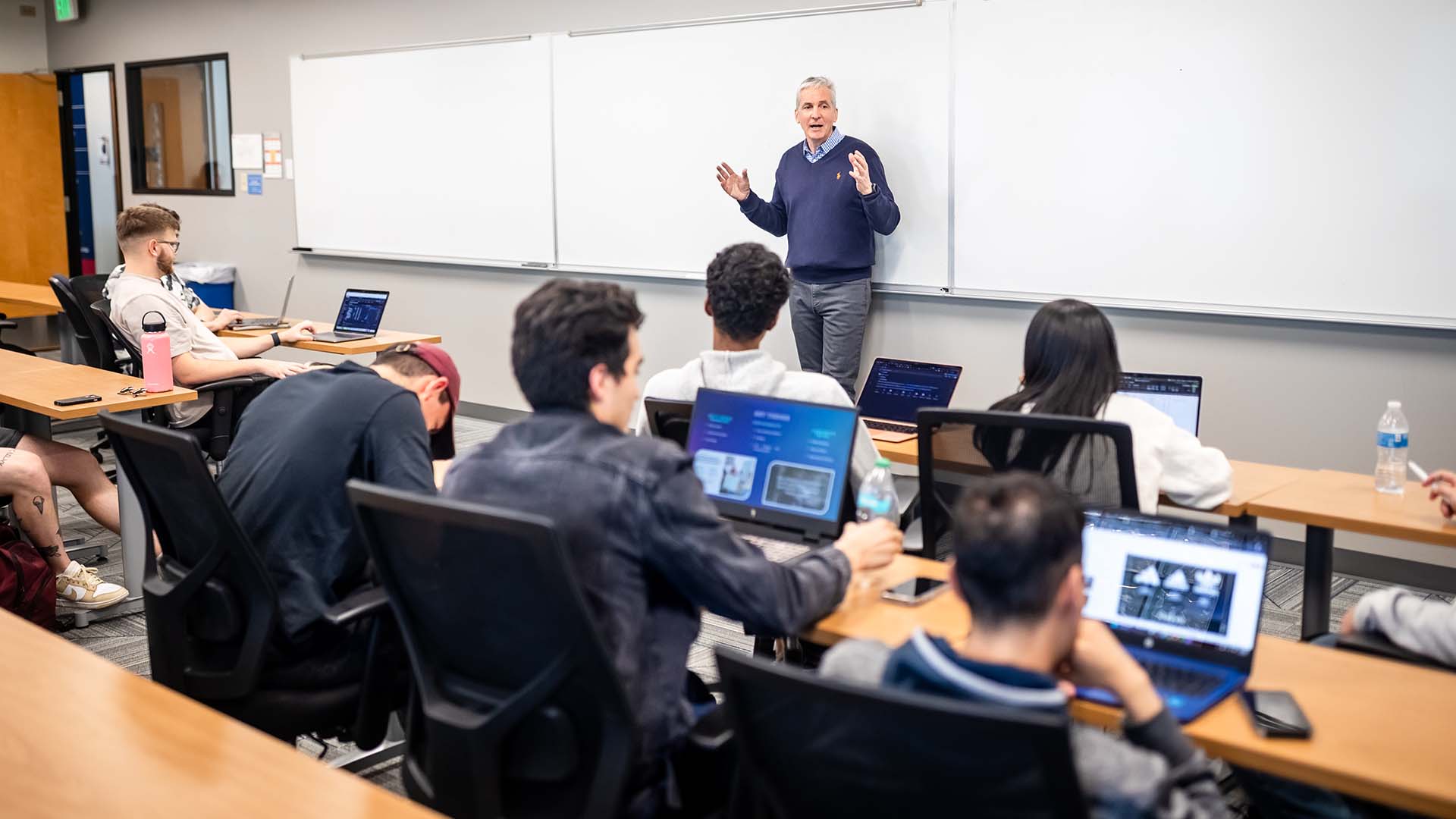More teachers, less cheating and value in education
MSU Denver faculty lead the charge against the teacher shortage and academic fraud at the legislative level.

While colleges, universities and high schools commonly use plagiarism-detection platforms to check student work against existing content online, homework-help websites such as CourseHero.com or NoNeedToStudy.com can do original work on behalf of students.
The Accounting Department at Metropolitan State University of Denver spent a month investigating an instance of a graduate student cheating in that way in 2017. The student paid the website to complete eight assignments and earned a B-minus in the course before getting expelled by the University. Beyond that, another accounting student is being investigated for completing a timed online exam through another website – that student forwarded his test, received a completed version back and submitted it for grading within a one-hour window.
These instances of advanced academic fraud aren’t limited to MSU Denver. The International Center for Academic Integrity surveyed tens of thousands of college students during a 12-year period and found that 68 percent of undergraduates and 43 percent of graduate students admitted to cheating.

Greg Clifton, chair of the accounting department and a licensed lawyer, felt that the pervasive ease of cheating was risking the reputation of the University by releasing underqualified graduates into the workforce. He took his concerns to the dean of the College of Business, the provost, MSU Denver’s legislative team and ultimately all the way to the state Capitol. Clifton’s efforts paved the way for House Bill 1252, which creates civil penalties for an entity or person who prepares, sells or distributes completed academic assignments or advertises those services in Colorado.
“My thought was, ‘We need to attack this at both ends.’ We need to deal with the student side, and we can deal with that pretty easily, but we also need to deal with the capitalist side of the coin,” Clifton said. “I am pleasantly surprised by how quickly this happened and by how engaged our legislative team has been.”
Clifton testified in front of House and Senate committees, recruited students to testify and met with individual legislators and the Black Democratic Legislative Caucus of Colorado. The bill passed both houses and is awaiting the governor’s signature, and Clifton became one of several MSU Denver faculty members to play a part in successful legislation in the 2018 session.
Other faculty influencing state law include chemistry professor Emily Ragan, whose efforts to make college more affordable through open educational resources include chairing a group that pushed House Bill 1331, which allocates $660,000 and one staff member to oversee the Colorado Open Educational Resources Council.
Then there’s Elizabeth Hinde, dean of MSU Denver’s School of Education, who was instrumental in the passage of three different bills in the 2018 legislative session.
Senate Bill 229 creates a streamlined process for criminal-history record checks for students in educator-preparation programs so that the state maintains the information and students don’t bear the financial and time burdens of going through separate background checks for every school district they could work in. The bill went through six committees and the objections of vendors who profit from the previous system.
“Students were having their graduation delayed and they were dropping out because it was so hard to get background checks done,” Hinde said. “I thought this would be a slam-dunk, just testify once, and it turned into a big drama. But it was worth it, and our students are going to be so much better off.”
Hinde also advocated for two bills aimed at providing resources to combat the teacher shortage in Colorado.
House Bill 1189 creates a $600,000 grant program in the Department of Education to help expand best practices and strategies of effective teacher residency programs in Colorado, such as the one at MSU Denver, while House Bill 1332 allocates $2 million for grants to educator-preparation programs to directly address the teacher shortage.
Hinde has worked with deans from across the state and Colorado education entities for two-plus years on strategies to combat the shortage.
“It was my responsibility, really – we’re right here in Denver – to alert legislators as to what it’s really like and what is going on,” Hinde said.







